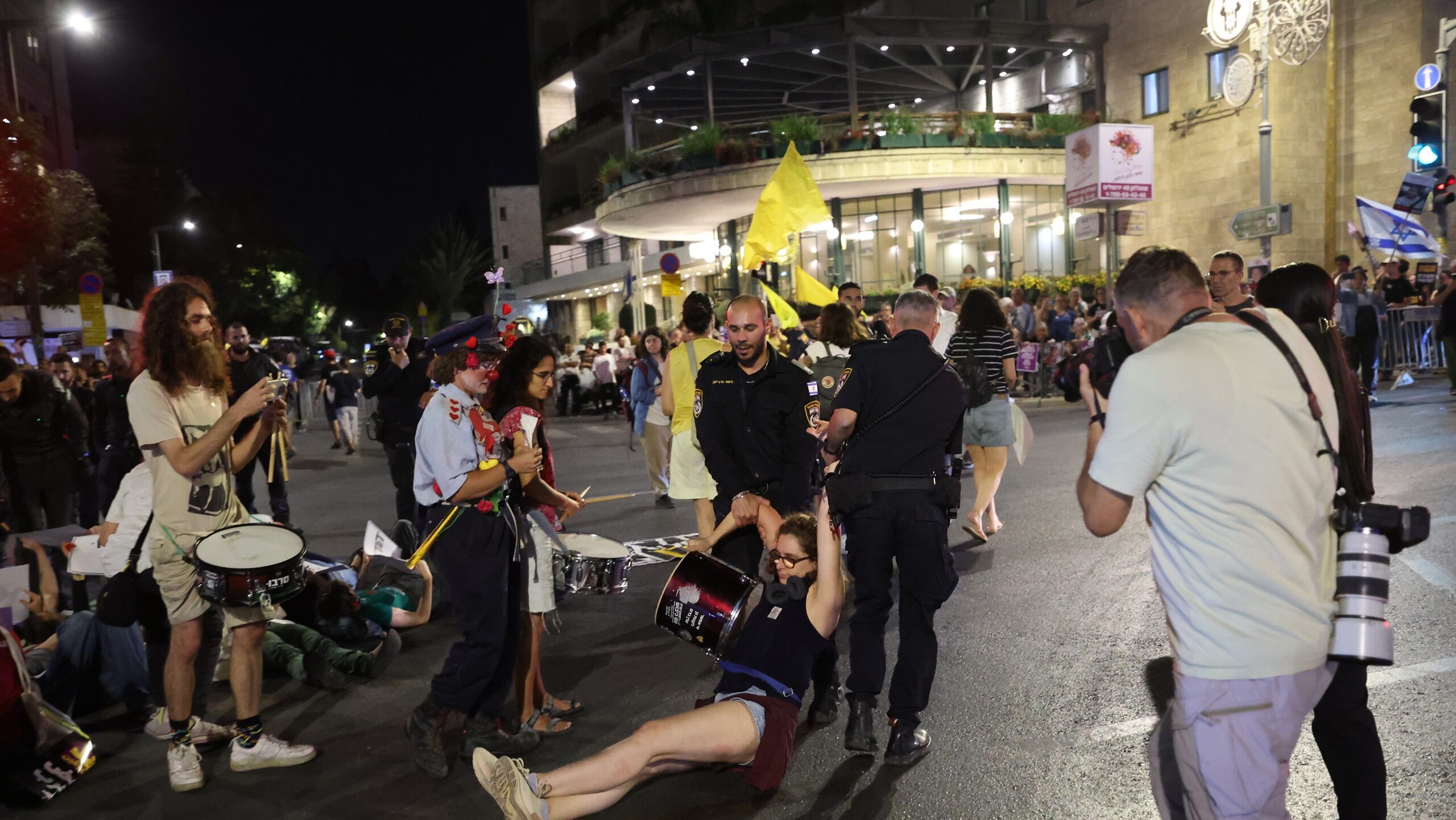Leaked Report, Cabinet Feud Expose Deep Divisions in Israel’s Gaza Strategy
Lt. Gen. Eyal Zamir, the IDF chief of staff, urged ministers to accept a phased exchange as the cabinet argued over plans to seize Gaza City
Israel’s leadership is facing mounting turmoil over the direction of the war in Gaza, with a leaked military assessment casting doubt on the army’s preparedness, families of hostages demanding a deal, and cabinet infighting exposing deep divisions at the top.
A classified Israel Defense Forces (IDF) document, partially leaked to Israeli media, concluded that the recent four-month campaign in Gaza, known as Operation Gideon’s Chariots, failed to achieve its main objectives of toppling Hamas and freeing hostages. According to Channel 12, the internal review circulated among brigades described repeated tactical errors, slow maneuvers, and poor readiness for guerrilla warfare. It also faulted bungled aid distribution, which the report said allowed Hamas to mount a public relations campaign portraying Israel as deliberately starving civilians.
While some officers credit the operation with lowering Hamas’ demands in hostage talks, the assessment warned that the army remains unprepared for its next mission: taking over Gaza City. In response, the IDF denied that its goals were unmet, saying the leaked document was distributed without clearance and was being investigated.
The controversy comes as political leaders remain deadlocked over whether to pursue a phased ceasefire and hostage-release arrangement. Hamas has said it accepted a plan last month involving the release of 10 living hostages and the remains of 18 others in exchange for a 60-day ceasefire, prisoner releases, and further negotiations. Prime Minister Benjamin Netanyahu has since rejected such proposals, insisting on a comprehensive agreement in which all captives are freed and Hamas disarms.
Hostage families say time is running out. Anat Angrest, the mother of captured soldier Matan Angrest, told Israeli television: “My son is still alive and I ask: Do not endanger any soldier to rescue him. Matan will not be able to live with this in peace, and neither will we. No one needs to die to save him. We need to reach a deal and return the hostages home.”
At present, Israel believes 20 of the 48 hostages held in Gaza are alive. Only eight have been rescued by troops since the war began.
This holiday season, give to:
Truth and understanding
The Media Line's intrepid correspondents are in Israel, Gaza, Lebanon, Syria and Pakistan providing first-person reporting.
They all said they cover it.
We see it.
We report with just one agenda: the truth.


There is a framework on the table, we must take it
The stalemate boiled over in Netanyahu’s cabinet at a tense meeting this week. Reports from Hebrew media said the six-hour session, focused on plans to seize Gaza City, turned into a shouting match when IDF Chief of Staff Lt. Gen. Eyal Zamir pressed ministers to accept the framework deal. “There is a framework on the table, we must take it,” Zamir told the cabinet, according to Channel 12.
Settlements and National Projects Minister Orit Strock shot back with a biblical verse implying cowardice: “Is there anyone afraid and disheartened? Let him go back to his home, lest the courage of his comrades flag like his.” Zamir responded sharply, saying his missions included “preventing a nuclear Iran and destroying Hamas,” and added, “If you want blind discipline, bring somebody else.” Netanyahu intervened: “I don’t want blind discipline, but also not someone who oversteps.”
Forget the partial deals. Go in with full force and finish this.
Far-right ministers Itamar Ben Gvir and Bezalel Smotrich demanded a formal vote to reject the deal. Netanyahu refused, saying “a partial deal is not relevant” and telling colleagues that US President Donald Trump had urged him not to accept compromises. According to Israeli media, Netanyahu quoted the American president as saying: “Forget the partial deals. Go in with full force and finish this.”
The cabinet rift spilled into the public sphere. Blue and White-National Unity leader Benny Gantz wrote on X that Israelis “deserve a cabinet that backs the IDF, not one that puts spokes in its wheels.” The Hostages and Missing Families Forum accused Netanyahu of “sacrificing the hostages and the soldiers on the altar of his political survival.”
Meanwhile, Ben Gvir escalated his own confrontation with Attorney General Gali Baharav-Miara, threatening to impose new restrictions on protests within 24 hours unless his proposals are approved. The attorney general’s office said his plan violates agreed limits on his authority to direct police policy over demonstrations. Ben Gvir dismissed the objections as “threats and extortion,” writing that “determining policy in this context is the legal authority and even the duty of the national security minister.”
The disputes unfolded as ministers also briefly discussed possible annexation of parts of the West Bank, with Strategic Affairs Minister Ron Dermer reportedly pushing a plan limited to the Jordan Valley. That debate was overshadowed by the Gaza crisis, but European governments have already warned that annexation would trigger sharp diplomatic backlash.
With the military under pressure to prepare for a Gaza City offensive, the government split over a hostage deal, and ministers at odds with both the attorney general and the army leadership, Israel’s decision-making at a time of war appears fractured. Whether Netanyahu follows Trump’s advice to press forward militarily or shifts toward negotiations may determine both the fate of the hostages and the trajectory of the conflict.

